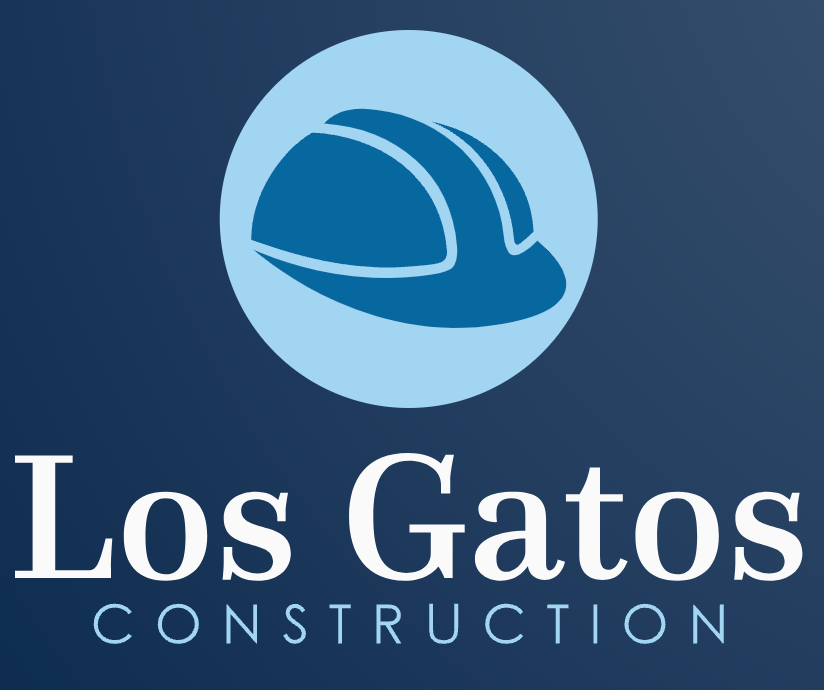How SB721 Impacts Condo and Apartment Owners in Los Gatos
If you own a condo or apartment in Los Gatos, SB721 shakes things up by tweaking rental rules, security deposits, and maintenance duties. You’ll find clearer tenant-owner roles, faster repair timelines, and new limits on deposits and lease lengths that aim to keep things fair and smooth.
Money-wise, assessment fees might shift, so budgeting better is smart. Plus, staying in the know and chatting with neighbors helps you dodge headaches. Stick around to see how to make SB721 work for you.
Key Takeaways
- SB721 clarifies rental agreement rules, limiting rental durations and capping security deposits to protect both owners and tenants.
- The law imposes stricter timelines and notifications for evictions, enhancing tenant rights and owner responsibilities.
- Property maintenance guidelines are strengthened, requiring quicker repairs and better documentation to improve living conditions.
- Financial impacts include potential changes to assessment fees and requirements for owners to budget for repairs and compliance.
- SB721 encourages education, communication, and community collaboration among owners to ensure smooth compliance and stronger neighborhood ties.
Overview of SB721 and Its Legislative Goals
Think of SB721 as a new rulebook aimed at making life better for condo and apartment owners like you. It comes from a legislative background focused on addressing common challenges in shared living spaces.
Lawmakers noticed the need to balance the rights and responsibilities of owners and renters, so they crafted SB721 with clear policy objectives. These goals include promoting fairness, reducing conflicts, and improving how communities manage their properties.
You’re not just a property owner; you’re part of a neighborhood that deserves smoother, friendlier interactions. SB721’s policies aim to create that sense of belonging by clarifying rules and making enforcement more consistent.
It’s like having a referee who keeps the game fair so everyone can enjoy playing. This bill isn’t about adding headaches—it’s about making ownership easier and more rewarding.
Changes to Rental Agreement Regulations
You’re probably curious about how SB721 shakes up rental agreements, right?
It puts new limits on how long leases can last, changes rules around security deposits, and tweaks the eviction process to be a bit more tenant-friendly.
Let’s unpack what all that means for you as a condo or apartment owner without making your head spin.
Rental Agreement Duration Limits
Even though rental agreements used to follow pretty standard rules, SB721 is shaking things up a bit when it comes to how long you can lock in a lease.
Now, you might find that the rental market demands more lease flexibility, which means you can’t always sign those long-term agreements you’re used to.
This change encourages shorter rental periods, giving both you and your tenants more wiggle room to adapt as life changes.
It’s like the rental market is saying, “Let’s keep things fresh and flexible!”
If you’re a condo or apartment owner in Los Gatos, this could mean adjusting your approach to leases, but it also opens the door to connecting with renters who appreciate a bit more freedom.
It’s all about finding that balance together.
Security Deposit Restrictions
One big change SB721 brings is around security deposits, and it’s something every condo or apartment owner should know about.
Now, the law puts tighter limits on how much you can ask for upfront in tenant agreements. You can’t just demand a huge security deposit anymore; typically, it’s capped at two months’ rent for unfurnished places and three months for furnished ones.
This keeps things fair and helps build trust with your tenants right from the start. Plus, you have to be clear about how you’ll handle those deposits—no sneaky business.
Think of it as a way to create a community where everyone feels respected and protected. It’s a small change that makes a big difference in how you and your tenants get along.
Eviction Process Adjustments
Handling security deposits fairly is just one piece of the puzzle; SB721 also shakes up how evictions work, which can change the way you deal with tricky tenant situations.
Now, eviction timeline adjustments mean you’ve got to be extra careful with deadlines. You can’t rush the process or skip steps, or you risk legal headaches.
Plus, tenant notification requirements have gotten clearer and stricter, so you’ll need to provide proper, timely notices before any eviction moves forward. Think of it like giving your tenants a fair heads-up, keeping things transparent and respectful.
This way, you build trust and avoid messy conflicts. Remember, these changes aren’t there to trip you up but to help everyone feel seen and treated right in your community.
It’s all about creating a smoother, fairer rental experience for all.
Impact on Property Maintenance and Repairs
Keeping up with property maintenance and repairs can feel like a never-ending job, especially when new laws like SB721 come into play.
This bill tightens the rules around property upkeep and repair standards, meaning you’ll need to be extra vigilant.
Here’s how SB721 might shake things up for you:
- You’ll have clearer guidelines on what repairs need priority, so no more guessing games.
- The law encourages quicker action on fixes, helping keep your place safe and comfy.
- Increased accountability means you might've to document maintenance more thoroughly—think of it as keeping a better diary for your property.
- It can foster a stronger sense of community, as everyone benefits from well-maintained buildings.
Tenant Rights and Owner Responsibilities
Although it might seem tricky at first, understanding tenant rights and owner responsibilities is key to keeping things running smoothly in your condo or apartment.
You’ve got owner obligations like maintaining safe, livable spaces and addressing repairs promptly. It’s part of building trust with your tenants and creating a community where everyone feels respected.
On the flip side, tenants have responsibilities too, like paying rent on time and keeping the place tidy.
When both sides stick to their roles, it prevents headaches and keeps the vibe positive. SB721 nudges you to be extra clear about these duties, so no one’s left guessing.
Think of it like a team effort—when you and your tenants know what’s expected, you both win. It’s not just about rules; it’s about creating a space where people feel at home and valued.
And hey, a little clarity goes a long way in avoiding those awkward conversations!
Financial Implications for Condo and Apartment Owners
You might notice some changes in assessment fees thanks to SB721, which could shake up your usual budget.
It’s smart to start planning ahead for repairs, since costs can pop up when you least expect them.
Don’t worry, though—getting a handle on these financial shifts now will save you headaches later.
Assessment Fee Changes
When new rules like SB721 come into play, your assessment fees might see some changes that could surprise you. The law shakes up how assessment fee structures work, aiming for fairness but also meaning you might pay differently than before.
Here’s what you should keep in mind:
- Expect clearer owner communication about how fees are calculated.
- Your share of assessments could shift based on updated formulas.
- Fee changes might reflect recent repairs or upgrades more accurately.
- You’ll get better updates on why fees go up or down, so no surprises.
Think of it like joining a club where everyone chips in fairly, and the rules just got a bit tweaked to keep things smooth.
Staying in the loop helps you feel part of the community and ready for what’s next.
Budgeting for Repairs
Now that you know how assessment fees might change with SB721, it’s smart to think about budgeting for repairs. You’ll want to get comfortable with repair budgeting, setting aside money regularly so you’re not caught off guard.
Think of it like creating a safety net—you and your neighbors can build a strong community by pooling resources wisely. Don’t forget about emergency funds, either; they’re your best friend when unexpected repairs pop up, like a leaky roof or broken elevator.
Keeping these funds ready means fewer headaches and less scrambling when something goes wrong. Remember, budgeting isn’t just about money; it’s about peace of mind and knowing you’re part of a supportive, prepared community.
Compliance Deadlines and Enforcement Measures
Although meeting deadlines might sound like a drag, keeping up with SB721’s compliance dates is key to avoiding any headaches down the road.
You’ll want to stay on top of the enforcement timelines to keep your community safe and sound. Here’s a quick rundown of what you should know about SB721 compliance strategies and deadlines:
- Identify your building’s age and type to determine when inspections must start.
- Schedule the initial inspection before the deadline to avoid penalties.
- Complete any required repairs or retrofits within the specified time frame.
- Submit all necessary paperwork on time to prove you’re on the ball.
Missing these deadlines can lead to fines or even restrictions on selling units, which nobody wants.
But don’t worry, sticking to the timeline isn’t just about following rules—it’s about protecting your home and neighbors. Together, you can keep your condo or apartment safe and thriving under SB721’s watchful eye.
Strategies for Owners to Adapt to SB721 Requirements
Since SB721 can feel like a big puzzle at first, it helps to break it down into simple steps you can tackle one by one.
Start with owner education—get familiar with what SB721 requires and share that knowledge with your neighbors. When everyone understands the rules, it’s easier to work together and avoid last-minute scrambles.
Next, embrace proactive communication. Don’t wait for problems to pop up; reach out early to your HOA board or property manager with questions or concerns. Keeping the conversation flowing helps you stay ahead of deadlines and prevents surprises.
Also, consider forming a small group of owners who meet regularly to discuss progress and share updates. It’s a great way to build community and make sure no one feels lost in the process.
Frequently Asked Questions
How Does SB721 Affect Short-Term Vacation Rentals in Los Gatos?
You’ll need to follow new short term regulations that guarantee rental property compliance, helping you and your neighbors maintain a safe, welcoming community in Los Gatos while responsibly managing your vacation rental together.
Are There Exemptions for Historic Condominium Buildings Under SB721?
You’ll find exemptions for historic condominium buildings under SB721 if they meet specific historic preservation and compliance criteria. This guarantees your community’s unique character is respected while aligning with the law’s intent and your shared values.
Does SB721 Influence Homeowners Association (HOA) Fee Structures?
Imagine your community as a garden—HOA funding and maintenance assessments are its water and sunlight. SB721 can reshape these fees, ensuring your shared spaces thrive and everyone feels connected and cared for.
How Will SB721 Impact Property Insurance Premiums for Owners?
You’ll notice insurance costs may shift as SB721 changes risk assessment methods. This means your premiums could adjust, but you’re part of a community working together to manage these new challenges and protect your home.
What Resources Are Available for Owners to Dispute Compliance Violations?
Think of dispute resolution as your lighthouse amid compliance storms. You’ve got compliance resources like local housing departments and mediation services to guide you safely. Together, they help you stand united and protect your community’s interests.
Final Thoughts
So, SB721 shakes things up by making you juggle new rules on repairs, tenant rights, and finances—did you know nearly 60% of local owners say it’s already changed how they handle maintenance? It’s a lot to take in, but staying ahead means less stress and smoother rentals.
Think of it like upgrading your condo’s wiring—annoying at first, but worth it to keep things running without sparks flying. Don't worry - you’ve got this! We're here to help. Contact us today. Our expert team can walk you through the entire process of SB721 compliance.

